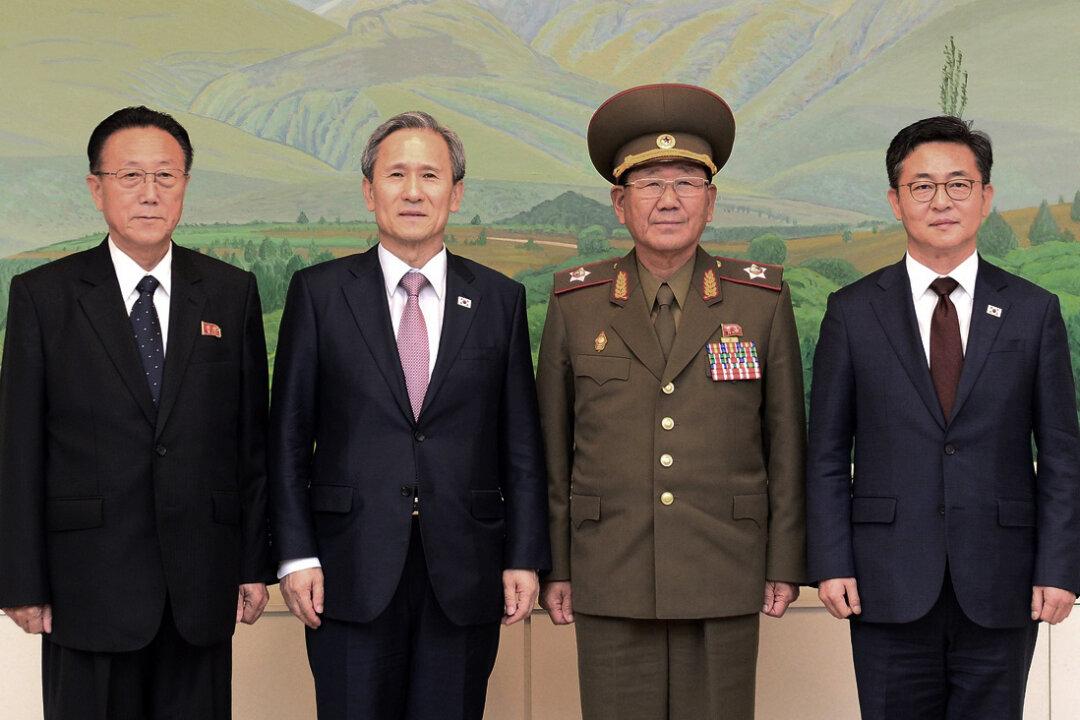SEOUL, South Korea—The blood-curdling threats against the South emanating from North Korea are all too familiar, but ironically the repeat performance only underlines the North’s weakness. A changing global landscape for the Koreas, especially weakening Chinese support for Pyongyang, is making the North Korean threat increasingly hollow.
On Aug. 20, North Korea declared a “quasi state of war” following the exchange of artillery shells across the misnamed Demilitarized Zone, once again raising the specter of conflict on the Korean Peninsula.
Yet instead of waging war, Pyongyang, chastened perhaps by Chinese counsel for restraint, began talks with Seoul and agreed to call off its state of war and start dialogue with the South.
For more than half a century since the signing of the 1953 armistice agreement, the capitalist-based, democratic South has had to cope with an endless series of armed provocations from the aggressive, totalitarian system of the North. But the end of the Cold War in 1991 brought increasingly closer relations between China and Russia—traditional allies of the North—and U.S.-backed South Korea. Today, North Korea confronts dramatically new international dynamics as it seeks to alter the status quo. The strong-arm tactics by Kim Jong Un, the 33-year-old hereditary leader who came to power in December 2011, to gain political concessions simply are not working.

